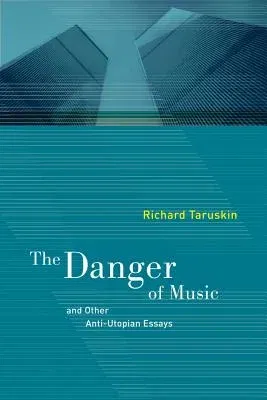Richard Taruskin
(Author)The Danger of Music: And Other Anti-Utopian EssaysPaperback, 11 November 2010

Qty
1
Turbo
Ships in 2 - 3 days
Only 1 left
Free Delivery
Cash on Delivery
15 Days
Free Returns
Secure Checkout

Print Length
506 pages
Language
English
Publisher
University of California Press
Date Published
11 Nov 2010
ISBN-10
0520268059
ISBN-13
9780520268050
Description
Product Details
Author:
Book Format:
Paperback
Country of Origin:
US
Date Published:
11 November 2010
Dimensions:
22.61 x
15.24 x
3.3 cm
ISBN-10:
0520268059
ISBN-13:
9780520268050
Language:
English
Location:
Berkeley, CA
Pages:
506
Publisher:
Weight:
703.07 gm